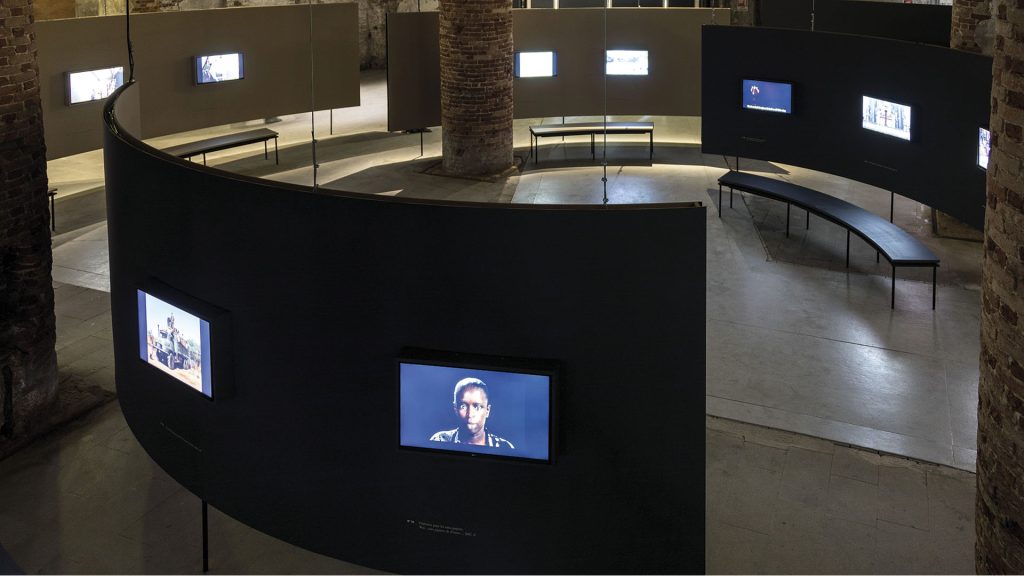
At the Arsenale, Marco Scotini’s research on history and archives highlights the necessity of disalignment as a form of resistance against the fossilizing expressions of neocapitalism.
In this frontier Biennale, so close and yet so far from everyday experience – so vast in its tension, open to research and contamination –stands out those who have engaged with the idea of a multiple exhibition space tied to a sharp and transversal theme, such as that of estrangement. On one hand, the kaleidoscopic, multifaceted exhibition space set up by Pedrosa cannot help but evoke the original idea of the internationalism of art, pushing it beyond the denied national boundaries, starting with the invocation of the Foreigners Everywhere of the title. On the other, the ubiquity and transversality that emerge inevitably prompt reflection on the pervasive connective fabric underpinning the art system. The Biennale does, in fact, engage engages with the global extension of capitalist economy. Thus, vernacular, peculiar works, such as handmade objects, textiles, and artisanal crafts, enter the art market, showcasing themselves to the world. Similarly, subcultures, surfacing into visibility, become normalized, losing their subterranean and subversive nature to align with the new normal, spreading across the vast tapestry of global capitalism – which has triumphed, albeit in all its contradictions. Its contradiction lies in its attempt to become space, environment, cradle, and frame.
Here, the most compelling works of this neo-capitalist Biennale escape spatial boundaries; they transcend. They become sound – dynamic relationships with space that also embrace their opposite: dispersion, silence, emptiness. Such is the case in the dynamic polyptych Disobedience Archive, curated by Marco Scotini as a pre-cinematic and pre-globalistic device, The Zoetrope. This work imposes an escape from any formalization, and from the linear time of fruition, sketching a centrifugal spiral upon which video testimonies by artists are grafted – artists who, along the linear trajectory of total capitalist hegemony, have each marked desperate exits, attempts at disalignment. This conative, resistive poetics may indeed be the true pivot of the entire exhibition – the most political and contradictory ever. Diasporas and nomadic subjectivities, then, not as expressions of neo-capitalism, which admits everything except its contradictions, but as desperate and hope-seeking expressions that move away from the goal (-spa in Sanskrit means “goal,” and despair is nothing other than a departure from it), away from any goal in a perpetual motion that prevents any sedimentation or fossilization. This aligns with Scotini’s significant work, consistently reflecting on history and archives, and articulating the idea of a Biennale as a constituting rather than constituted institution, untethered from traditional constraints and open to continuous regeneration, rejecting monopolistic, sovereignist, centralized, and hierarchical affiliations.